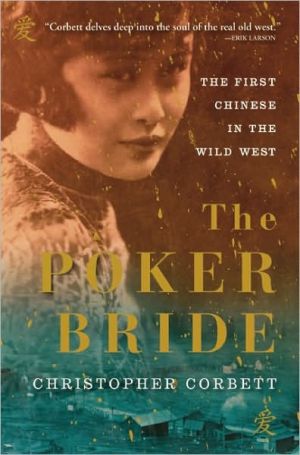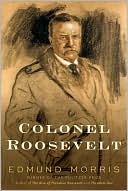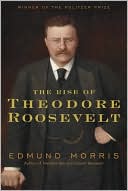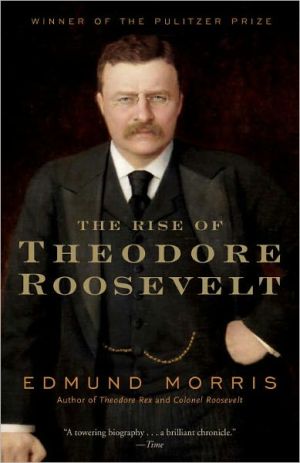The Poker Bride: The First Chinese in the Wild West
Before 1849, the Chinese in the United States were little more than curiosities. But when Gold Rush fever gripped the globe, thousands of Chinese immigrants came through San Francisco to seek a fortune. In The Poker Bride, Christopher Corbett uses the legend of one extraordinary woman-now the stuff of Idaho lore-as a lens into this Chinese experience. When the gold rush receded, it left behind Polly Bemis, who narrowly escaped life as a concubine and settled in the remote Idaho hills with a...
Search in google:
When Gold Rush fever gripped the globe in 1849, thousands of Chinese came through San Francisco to seek fortune. In The Poker Bride, Christopher Corbett uses a legend of one extraordinary woman as a lens into this experience. Before 1849, the Chinese in the United States were little more than curiosities. But as word spread of gold in California, San Francisco's labyrinthine Chinatown sprang up, a city-within-a-city full of exotic foods and strange smells where Chinese women were smuggled into the country. At this time Polly, a young Chinese concubine, was brought by her owner to a remote mining camp in the highlands of Idaho, where he lost her in a poker game. Polly and her new owner then settled at an isolated ranch on the banks of the Salmon River. As the Gold Rush receded, it took with it the Chinese miners, but left behind Polly, who would make headlines when — as an old woman — she emerged from the Idaho hills nearly half a century later to tell her astounding story. The Poker Bride reconstructs a tale of the real American West: a place where the first Chinese flooded the country and left their mark long after the craze for gold had vanished. The New York Times - Dominique Browning Corbett's accomplishment in pulling this dark history into a popular narrative is all the more impressive when you consider the difficulty of reporting on a foreign population that lived mainly outside the reach of census takers and journalists (though Mark Twain and Richard Henry Dana both wrote about the gold rush). On the whole, Corbett handles a great deal of sordid material with sensitivity.
THE POKER BRIDE\ The First Chinese in the Wild West \ \ By CHRISTOPHER CORBETT \ Atlantic Monthly Press\ Copyright © 2010 Christopher Corbett\ All right reserved. \ ISBN: 978-0-8021-1909-4 \ \ \ \ Preface\ The stakes in a game of cards ... \ The old woman came down out of the mountains in central Idaho the same way she had gone in more than half a century earlier: on the back of a saddle horse, across some of the most rugged and remote country in the American West. The two prospectors who brought her out in the summer of 1923 took her first by horseback along the steep banks of the nearly inaccessible Salmon River-known as the "River of No Return"-to the end-of-the-road mining camp of Warrens. From there, she went by car along largely unpaved roads, nearly 100 miles to Grangeville, the Idaho County seat. Not only had she never ridden in an automobile; she had never seen one. She had never heard a radio or seen a train, an airplane, a motion picture, or electric lights.\ The old woman's arrival in the county seat was the major news story of the week in the Idaho County Free Press, which gave it a headline in a large font across the front page, above the banner. The newspaper's editor, J. F. Safley, who interviewed her at length, later likened her arrival in Grangeville to Washington Irving's short story "Rip Van Winkle." In the Free Press, her trip out of the Salmon River country eclipsedtributes to the late president Warren G. Harding, who had died suddenly two weeks earlier, as well as news about the release of 90,000 tiny trout into four creeks, the arrest of a notorious bank swindler, and a statewide decline in property valuations.\ The old woman's name was Polly Bemis, and her trip out of the remote Salmon River mountain country reversed a journey she had made in the summer of 1872. Polly Bemis was a Chinese concubine who had been won in a poker game by a feckless Connecticut Yankee gambler named Charlie Bemis and had lived with him for decades at a remote ranch deep in a canyon of the Salmon River. That was the story-or one story.\ Her life in the American West was straight out of a dime novel. As a teenager, the girl had been sold by her parents in a village in China during a famine, so that her starving family might survive. It was a common enough practice in rural China, where women had few or no rights and were often traded or sold like livestock. This girl was pretty, and the men who bought her-she said they were bandits-sold her in turn to procurers, who scoured the countryside in those days for girls and young women to supply the sex slave trade. In the middle to late nineteenth century, many of them would be shipped to California to live in a mining camp brothel or in the labyrinth of San Francisco's crowded Chinatown, where everything was for sale, especially flesh. It was a hard life and for many it was a short life, too.\ But Polly Bemis, as she would be known, was bought by a Chinese merchant-sight unseen-for what was then a fabulous sum and smuggled into the United States on a ship that sailed from China. From San Francisco, the great port of entry from the Far East, she was taken by an old Chinese woman on a steamer up the Pacific coast to Portland, Oregon, and from there upriver to the boomtown of Lewiston in the Territory of Idaho. She was then packed overland on the back of a horse to the remote mining camp of Warrens, where the merchant who had purchased her lived. The "Chinaman"-the term used in those days-eventually lost her in a poker game to Charlie Bemis, a local saloonkeeper, cardsharp, and idler. That was another part of the story.\ Bemis would later survive a shooting by a disgruntled gambler and would be nursed back to health by this Chinese woman. He then did something almost unheard of in the American West: he married her when she would have been likely to be deported, at the height of the anti-Chinese campaign that inflamed the country in the late nineteenth century.\ The couple then retreated deep into the Salmon River canyon country to a secluded homestead under a mountain called the Buffalo Hump. Here, ringed by towering mountains and a countryside that was snowbound six months or more of the year, they were seldom seen, glimpsed only by the reckless and daring few who risked the passage down the "River of No Return" in rough wooden boats. The wildest river in America, which had turned back Lewis and Clark and the Corps of Discovery, the Salmon was not successfully navigated until the end of the nineteenth century. Few places in the continental United States were less accessible. As nearly as could be figured when Polly Bemis arrived in Grangeville that summer, she had not been off the ranch since the mid-1890s and then only to hardscrabble Warrens, now called Warren, a cluster of unpainted shacks and log cabins literally at the end of the road.\ For many years Charlie and Polly Bemis lived deep in the Salmon River canyon country in a log ranch house on a small parcel of fertile bottomland, surrounded by a lush orchard of fruit trees and vegetable gardens. The mining town of Warrens was a day's ride away. They were entirely self-sufficient. Bemis operated a ferry on the Salmon River when he felt like it but declined payment on the rare occasion when he had a customer who wished to cross the water. He did, however, like to play cards with travelers passing through. Poker was the game that made him, but as an old man he had settled for cribbage. Charlie and Polly kept as a pet a live cougar that ate at the table with them from a metal plate, which had been nailed down. Rare visitors, when asked to dinner, found the half-wild animal an unsettling tablemate.\ When Polly Bemis arrived in Grangeville the summer after her husband had died, she was a celebrated curiosity, a living reminder of the Gold Rush that was fast becoming a legend in the Pacific Northwest. She was, in the words of one writer, "Idaho's Most Romantic Character."\ The old woman weighed less than 100 pounds. One observer said later that she was "no taller than a broom," about four and a half feet. She smoked a pipe. Unaccustomed to so much attention and so many people, she was extremely shy. She giggled almost continuously when she talked or was asked questions. The Idaho County Free Press described her attempts at English as "gibberish." She had more or less forgotten how to speak Chinese, too. The newspaper noted that she could neither read nor write. She wore a simple cotton dress ordered by mail from Montgomery Ward. Her gray hair was tied up in a tidy, tight bun and bound with a kerchief. She held a handkerchief to her deeply tanned, weathered face. At the home of Mrs. Anson Holmes, where Polly stayed for a week, visitors besieged her. Old-timers, prospectors from the great gold strikes of the nineteenth century who remembered the wild boomtown days and had known her when she lived in rough-and-tumble Warrens, where she kept a boardinghouse for many years, turned out to see her. Some people even brought their children. Polly was especially delighted to hold babies.\ The world astonished her. She had been living outside it for a very, very long time. She had gone up into the mountains of central Idaho a mere seven years after the American Civil War was over, when the Indian wars were still raging and there was still an emperor on the throne in Peking. Everything was different now. She became so excited by the wonders of the modern world that she wept with joy and fear, according to the newspaper. But such novelty also made her tired, she told interviewers at the time.\ On her feet were shoes that had been made for a boy-size four-and the newspaper explained that apparently, during her long-ago childhood in a China that had ceased to exist, her feet had been bound. Foot binding was a practice normally reserved for the upper classes in China, so this detail added yet more mystery to her already mysterious life.\ But it was not merely her romantic story, whether she had been won in the poker game or not, that explained her appeal. Polly Bemis was part of a nearly forgotten history. The Chinese had once flocked here-thousands of "Chinamen," thousands of "coolies" who first worked on the transcontinental railroad and later, looking for gold, trudged into the Idaho high country with everything they owned balanced on the ends of long bamboo poles on their shoulders. In their heyday, they had far outnumbered whites in some mining camps. They played a largely overlooked and incalculable role in the development of the Idaho Territory. But in the summer of 1923, with the "roaring twenties" in full swing, the "Chinamen" of the old days were a nearly vanished species-long dead or gone back to China-a fragment of an era that, like so much of the old West, was rapidly becoming myth.\ The life of Polly Bemis in the Idaho backcountry covered the arc of the Chinese experience in the American West. When she rode into the Territory of Idaho on a saddle horse in the summer of 1872, the mining boom was at a height and millions of dollars' worth of gold was being drawn out of the ground. Before the Gold Rush, the Chinese in America had been so rare that some were exhibited in freak shows. By the time Polly Bemis came off a ship from China there were tens of thousands of her countrymen here. She lived through many a boom and many a bust, and the newspaper reporting her death in 1933 noted on the same page-the front page-that speculators were planning once again to mine the ground in remote Warrens. Dreams of gold die hard.\ The life of Polly Bemis encompassed most of Idaho's early history. Polly was in Idaho at a time when being a "Chinaman" in the American West was not always a healthy situation. She knew the West of the proverbial "Chinaman's chance": no chance at all. She was living in Idaho when vigilantes there lynched five Chinese in the mining camp of Pierce City, and when bandits killed dozens of Chinese miners on the Snake River at Hell's Canyon. And she was in the American West when one of the worst acts of vigilantism in the nation's history-the massacre of more than forty Chinese coal miners-took place at Rock Springs in the Wyoming Territory. No one was ever punished for any of those crimes. She came up the river to Portland, Oregon, the same summer that Mark Twain's Roughing It reached the Pacific Northwest. Anyone who had been looking would have read in it the first largely sympathetic view of the Chinese in the West, a view shared by very few of Twain's countrymen at the time.\ Polly Bemis came into the United States during the "Chinese Must Go" movement, which started in San Francisco and spread quickly across the Pacific Slope. Chinese workers, at first welcomed in California in the early days of the Gold Rush, were now too numerous, the argument ran. The "yellow peril," as it was then referred to, must be stopped.\ Politicians, conservative newspaper editors, and labor agitators were howling for the Chinese to be deported and for immigration from China to be halted. Chinese immigrants were blamed for everything from disease-they were thought to carry illnesses terrifying to Americans, such as leprosy-to stealing jobs from white workers. Polly Bemis survived the Chinese Exclusion Act of 1882-one of the very few instances in American history when the federal government enacted laws aimed at a specific ethnic group; this act essentially barred or severely restricted the immigration of most Chinese into the United States until World War II.\ Polly Bemis came into a country where Chinese immigrants coming off ships in San Francisco were welcomed with a gauntlet of abuse and catcalls and were pelted with rocks as they walked up from the docks to Chinatown, the only safe place for them in the booming port. Polly Bemis also knew a West where the Chinese-especially in the early days-were often not allowed to vote. When the Chinese were allowed to own land, or file a mining claim, it was frequently only after white miners had worked over that mining claim and abandoned the site. The Chinese were not as a general rule allowed to testify in court against whites or become American citizens but were nevertheless subjected to petty poll taxes, miners' taxes, and other official annoyances. Casual physical assaults on the Chinese were routine and were often treated comically by newspapers of the period. No immigrant group in the American West of the nineteenth century was so mistreated, so marginalized.\ When Polly Bemis rode down from under the Buffalo Hump in the summer of 1923, the Idaho County Free Press headlined the news of her arrival: "Polly Awakes after Half Century Slumber in Mountains."\ After a week or so in Grangeville, which included a brief ride on a train, Polly went back up into the mountains the way she had come down. She had traveled to the county seat to get eyeglasses; her vision was poor. She went to a dentist, too. And then she went back up to her ranch on the Salmon River, hard by Polly Creek, which surveyors had named for her. She came down again the following year to travel to the state capital, Boise, to see other amazing sights and then returned to her ranch until the end of her life. Visitors who stopped to see the fabled "poker bride" found her spry and welcoming.\ Her last years were spent alone on the banks of the "River of No Return," tending her garden and orchard. She liked to fish, too. Her only neighbors were the prospectors Peter Klinkhammer and Charles Shepp, who had settled on a homestead on the other side of the river in the early 1900s. She left them her ranch with the understanding that they would care for her in her old age, and they did. When the prospectors brought her down to the county seat again late in the summer of 1933, Polly Bemis was dying.\ An old friend from the pioneer days, Mrs. Bertha Long, later recalled visiting Polly in the last weeks of her life. "You'll soon get well," Bertha told her. But Polly knew this was not to be. "No, me too old to get well, me have to go to other world to get well."\ She was eighty-one when she went to the other world, dying at the county hospital in Grangeville on November 6, 1933. For a time, she was buried at the Prairie View Cemetery there, but later her remains were reburied on the ranch on the banks of the "River of No Return." At the end of her life, she had asked Shepp and Klinkhammer only to see that she be buried where she could hear the river roar.\ Charles Shepp died in 1936, but Peter Klinkhammer lived on in the Salmon River country until his death in 1970. He left behind Polly's personal effects-her marriage license, her residency papers, some jewelry, silverware, a wedding dress, and some gold scales that had belonged to Charlie Bemis. The recipients of these items, the personal effects of an old Chinese concubine, were an order of Benedictine nuns at the Convent of Saint Gertrude on a hillside in Cottonwood, Idaho. One of those nuns, Sister M. Alfreda Elsensohn, who had spent a lifetime teaching children at the convent school, settled down in her retirement to chronicle the history of Idaho County and the Chinese who played such a significant and largely overlooked role in its pioneer days. Along the way, she immortalized the legacy of Polly Bemis and saved, too, the memory of "the poker bride."\ \ \ \ \ Excerpted from THE POKER BRIDE by CHRISTOPHER CORBETT Copyright © 2010 by Christopher Corbett. Excerpted by permission.\ All rights reserved. No part of this excerpt may be reproduced or reprinted without permission in writing from the publisher.\ Excerpts are provided by Dial-A-Book Inc. solely for the personal use of visitors to this web site. \ \
1 Celestials and Sojourners 12 Chinatown 273 Sold 454 Coming Into the Territory 635 The End of the Road ... Warrens 836 Soiled Doves 1057 Fond of Playing Cards 1218 The Shooting Affray in Warrens 1359 Saving Polly 15110 Last Days on the River 169Epilogue The Caravan of the Dead: Ghosts of the Oro Fino 185Bibliography 203
\ Dominique BrowningCorbett's accomplishment in pulling this dark history into a popular narrative is all the more impressive when you consider the difficulty of reporting on a foreign population that lived mainly outside the reach of census takers and journalists (though Mark Twain and Richard Henry Dana both wrote about the gold rush). On the whole, Corbett handles a great deal of sordid material with sensitivity.\ —The New York Times\ \ \ \ \ Publishers WeeklyThis unruly book mixes a wonderful mystery- wrapped story with the larger picture of Chinese immigration into the American West. The central story concerns a young Chinese woman sold by her family in 1872 into indentured prostitution. She turns up as a concubine in Idaho, is said then to have been won by another man in a poker game, and became Polly Bemis, the winner's legal, beloved wife in the remote wilderness of Idaho. Polly emerged into public view only in 1923, a tiny old woman on horseback, her identity and story known only to a few old-timers. Corbett wisely sets Bemis's life into the context of Chinese immigration, gold- country anti-Chinese prejudice, and life in the mining communities and remote fastnesses of Idaho a hundred years ago. The trouble is that Corbett also gives us over and over again every tale about Bemis, many of them conflicting, many more incomplete, and many no doubt apocryphal, clogging the work and making it longer than necessary. We need more of former AP editor and novelist Corbett's (Vacationland) own reflections, less of every one else's surmises and tales. (Feb.)\ \








